Studying aphasia by people with aphasia
is a big step towards educating the wider public about stroke, aphasia & plasticity
Research Articles & Materials

Aphasia in North America (Simmons-Mackie, 2018) White paper
“This report constitutes a “call to action” for all stakeholders interested in the future of aphasia services! Together we can and must act now to transform the lives of people with aphasia (pp. 9).”
“Overall Gap Summary
- Insufficient awareness and knowledge of aphasia by heath care providers and the wider public.
- Research suggests that many physicians may lack knowledge about aphasia and tend to overestimate the language abilities of patients with aphasia (McClenahan, Johnston, & Densham, 1990; Welsh et al. 2009).
- Poor public awareness of aphasia was found to inhibit access to information or resources by people with aphasia and their families (Hinckley et al. 2013).
- Not only is there low awareness of aphasia, communication disability in general is not well recognized. In fact, the 2015 Centers for Disease Control report on disability did not include communication among the disability domains (Centers for Disease Control, 2015a).”
Simmons-Mackie N. Aphasia In North America, Frequency, Demographics, Impact of Aphasia, Communication Access, Services and Service Gaps. Aphasia Access White Paper (2018).
Beyond the statistics: a research agenda in aphasia awareness.
“Great public awareness of similar “invisible” disabilities such as autism, Alzheimer’s or depressions have resulted in public empathy and created greater affinity with those who do have the condition. Aphasia consumer associations appear to want others to not only have knowledge about aphasia but also have the skill and attitude to communicate with them (pp. 462).”
“However, it is essentially to support the involvement of people with aphasia in this work from a position of equality with meaningful rather than tokenistic involvement (Pound, 2013; McMenamin, Tierney & MacFarlane, 2015; McMenamin & Pound, 2019). Researchers and co-researchers with aphasia should work collaboratively to co-design and co-evaluate aphasia awareness campaigns that will positively impact the lives of people living with aphasia around the world (pp. 464).”
“Aphasia awareness campaigns also appear to largely “preach to the choir.” That is, social media, print materials, and events typically target people who already know about aphasia – family, friends, professional colleagues and those on organization contact lists (pp. 465).”
“This paper serves as a call to action for those interested in increasing awareness and understanding of aphasia and ultimately improving the lives of those living with aphasia. It is time for more effective, targeted and collaborative aphasia awareness campaigns, or we risk the same disappointing aphasia awareness survey results over the next decade (pp. 468).”
Simmons-Mackie Nina, Worrall L, Shiggins C, Isaksen J, McMenamin R, Rose T, Guo Y, Wallace S. Beyond the statistics: a research agenda in aphasia awareness. Aphasiology, 34:4, 458-471 (2020).
Jürg Rainer Schwyter, Ph.D. (Cambridge)
I used to be Professor of English Linguistics and Head of the Lausanne English Department when, in February 2009, I suffered a severe brain stroke. I continue to recover, albeit slowly. Having retired from my post in 2020, I am now a research fellow at the Department.
For all those not familiar with a brain stroke and the severe consequences – particularly on language – it can have, I recommend reading the articles I wrote for CUP’s English Today (‘“Me talk funny”: A stroke patient’s personal account’, and the update ‘Ten Years After the Stroke‘), for Babel (‘Losing Language – Multilingualism and Aphasia‘) and for the International Journal of English Linguistics (‘Multilingualism in Stroke Patients’).
You might find the pamphlet ‘fascination brain’, including my contribution on multilingualism on pp. 15-16, published by the Ligue Suisse pour le Cerveau, Schweizerische Hirnliga, Lega Svizerra per il Cervello also very helpful. Illuminating is also the book by Barbara Lukesch who asks ‘Who are we Without Language? The Aphasia Experiment’: ten people from vastly different backgrounds share their experience during one day of self-imposed silence. Their experience gives outsiders an inkling of what aphasia is and the impact of such a disorder on aphasic people.
Brain strokes are the 3rd most common cause of death and the most common cause of handicap and disabilities in Switzerland; and if you survive, which is about 80%-90% in the EU and Switzerland, two thirds of patients need, one year after the stroke, assistance in one way or another. I was extremely lucky because, by now, I can manage my daily life quite well – except for some slight paralysis on the right side of my body and, if I’m excited or tired, the difficulty to articulate speech (i.e. aphasia).
My research interests focus, naturally, on all aspects of language and the brain. Also, I pursue my “former” fields of specialisation in socio- and historical linguistics.
I am particularly proud of my book Dictating to the Mob: The History of the BBC Advisory Committee on Spoken English, published by Oxford University Press (2016); a book (and related article in Babel: The Language Magazine) which I have written as a stroke survivor.
Also in 2016, Raphaël Meyer made a film entitled [jürg], which is about the stroke and my handicaps, especially aphasia. It can be accessed here (the password is: gunter). The film was shown at over a dozen film festivals – and it even won some prizes (see here for a list). In addition, [jürg] was presented at the 2017 ‘Science of Aphasia’ conference in the University of Geneva, and at the Centre for Speech and Language Intervention Research (CSLIR), University College London.
For more information on all of these, see also the unisciences page at:
https://www.unil.ch/unisciences/jurgrainerschwyter


